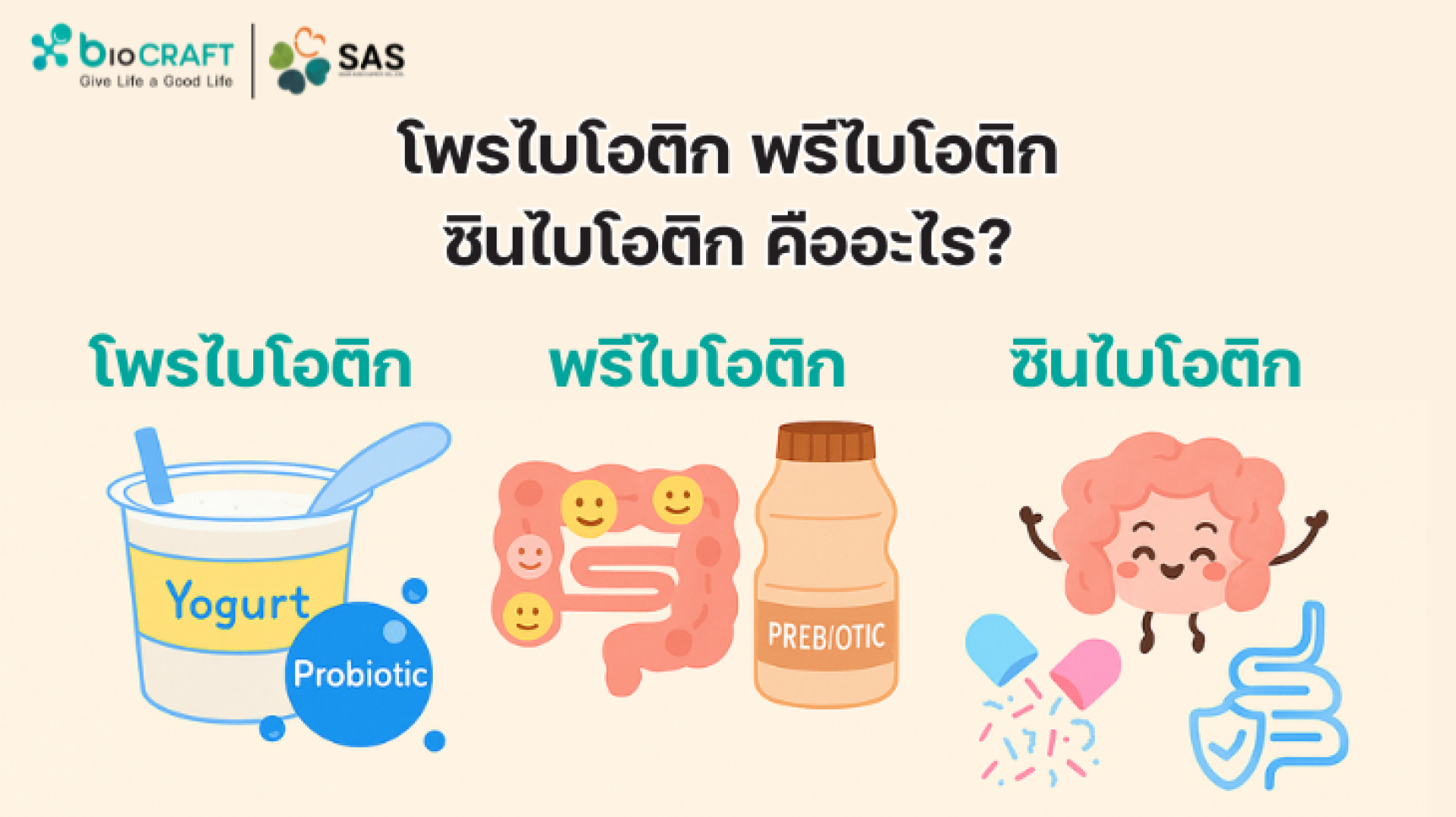What Are Probiotics, Prebiotics, and Synbiotics? Probiotics

What Are Probiotics, Prebiotics, and Synbiotics?
Probiotics
Probiotics are live microorganisms that confer health benefits when consumed in adequate amounts. Commonly referred to as good bacteria, they help maintain the balance of microorganisms in the gut and support overall health.
Examples of probiotics: Lactobacillus, Bifidobacterium
Food sources: Yogurt, kimchi, pickled vegetables, miso, tempeh, kefir, and other fermented foods.
Where are probiotics found in the body?
Probiotics are predominantly found in the gastrointestinal tract, especially the large intestine, but also exist in:
The mouth
The small intestine
The vagina (in women)
The skin
When do probiotics first appear in the body?
Probiotics are introduced at birth. During natural delivery, newborns receive beneficial bacteria from the mothers vaginal microbiota, and subsequently from breast milk. The gut microbiome evolves throughout life and is influenced by diet, medications, environment, and lifestyle.
Prebiotics
Prebiotics are non-digestible fibers that serve as food for probiotics. They stimulate the growth and activity of beneficial bacteria in the gut.
Examples of prebiotics: Inulin, Fructo-oligosaccharides (FOS)
Food sources: Onion, garlic, bananas, oats, apples, chicory root, and barley.
Synbiotics
Synbiotics refer to the synergistic combination of probiotics and prebiotics, in which prebiotics serve as nourishment for probiotics. This enhances the survival and efficacy of probiotics in the gut.
Benefit: Simultaneous intake of both can increase the likelihood that beneficial bacteria will thrive and exert positive health effects.
Health Benefits
Supports digestive function
Strengthens the immune system
Reduces constipation and diarrhea
Alleviates allergies and certain intolerances
Enhances mineral absorption
May reduce risk of some intestinal diseases
Can Children and the Elderly Take Probiotics?
For Children
Children can benefit from probiotic supplementation, particularly in cases such as:
Diarrhea due to infections or antibiotics
Inflammatory bowel conditions
Allergies or eczema
Note: Always consult a healthcare professional before giving probiotics to infants and young children.
For the Elderly
Older adults may especially benefit from probiotics due to:
Reduced microbial diversity with aging
Weakened immune function
Common issues such as constipation
Potential protection against gastrointestinal infections
Note: Those with compromised immune systems or severe chronic illnesses should consult a physician before use.
Probiotics in Disease Treatment
Probiotics play a significant role in both prevention and treatment of various diseases:
Conditions with supportive evidence:
Antibiotic-associated diarrhea Can reduce incidence by up to 60%
Irritable Bowel Syndrome (IBS) Alleviates abdominal pain, bloating, and irregular bowel movements
Chronic Inflammatory Bowel Diseases (IBD) May help manage Crohns disease and ulcerative colitis
Clostridium difficile infection Helps prevent recurrence
Vaginal infections Certain strains aid in managing yeast infections
Allergies and eczema May lower risk of allergic conditions in children
Probiotics and Inflammation
Chronic inflammation underlies many long-term diseases. Probiotics are increasingly recognized for their anti-inflammatory properties:
Anti-inflammatory mechanisms:
Immune modulation
Stimulate regulatory T cells (Tregs) that suppress inflammation
Reduce production of pro-inflammatory cytokines (e.g., TNF-α, IL-6, IL-1β)
Enhancement of gut barrier function
Strengthen intestinal tight junctions
Prevent leaky gut, a driver of systemic inflammation
Production of Short-Chain Fatty Acids (SCFAs)
Fermentation of prebiotics by probiotics generates SCFAs like butyrate
SCFAs act directly to reduce inflammation and nourish gut cells
Inflammatory diseases potentially benefited by probiotics:
Inflammatory Bowel Diseases (IBD): Crohns disease, ulcerative colitis
Rheumatoid arthritis Some strains help reduce joint pain and swelling
Dermatitis and psoriasis Alleviation of skin inflammation
Non-alcoholic fatty liver disease (NAFLD) Reduced fat buildup and inflammation
Probiotics and Cancer
Emerging research highlights the role of gut microbes in cancer risk and treatment:
Protective roles:
Detoxification of carcinogens
Some strains bind and eliminate potential carcinogens
Reduce DNA mutations that lead to cancer
Immune system activation
Enhance Natural Killer (NK) cells and cytotoxic T cells to destroy tumor cells
Reduction of chronic inflammation
Lower systemic inflammation that contributes to cancer development
Research findings in specific cancers:
Colorectal cancer Most evidence; probiotics can reduce tumor growth and improve gut environment
Stomach cancer May suppress Helicobacter pylori and reduce gastric inflammation
Liver cancer Improve gut-liver axis, reduce endotoxin production and liver inflammation
Potential role in treatment:
Reduce side effects of chemotherapy/radiation
Help alleviate treatment-related diarrhea and mucosal inflammation
Enhance treatment efficacy
Improve tumor response to therapy and strengthen immunity
Caution: Research is still early-stage. Cancer patients should consult a physician before using probiotic supplements.
What Happens When Probiotic Balance Is Lost?
Dysbiosis refers to microbial imbalance, where harmful bacteria outnumber beneficial ones in the gut. This may lead to:
Digestive disorders:
Chronic diarrhea or constipation
Leaky gut syndrome
Bloating, gas, and discomfort
Immune dysfunction:
Increased susceptibility to infections
Allergies and food sensitivities
Autoimmune conditions (e.g., thyroiditis, rheumatoid arthritis)
Neurological and mental health effects:
Depression and anxiety (via the gut-brain axis)
Disruption of neurotransmitters like serotonin
Impaired memory and focus
Metabolic consequences:
Higher risk of insulin resistance and Type 2 diabetes
Obesity
Altered cholesterol and lipid profiles
Contributing factors to dysbiosis:
Frequent antibiotic use
Diet high in sugar and fat
Chronic stress
Sleep deprivation
Excessive alcohol consumption
Environmental pollutants
References
Hill, C., et al. (2014). Nature Reviews Gastroenterology & Hepatology, 11(8), 506514.
Gibson, G. R., et al. (2017). Nature Reviews Gastroenterology & Hepatology, 14(8), 491502.
Swanson, K. S., et al. (2020). Nature Reviews Gastroenterology & Hepatology, 17(11), 687701.
Hojsak, I., et al. (2018). Pediatric Infectious Disease Journal, 37(3), e53e59.
Khanna, S., et al. (2017). Journal of Infectious Diseases, 216(3), 398406.
Plaza-Diaz, J., et al. (2019). Nutrients, 11(5), 1073.
Yu, A. I., & Zhao, L. (2018). Nature Reviews Microbiology, 16(7), 387398.
Vivarelli, S., et al. (2019). Cancers, 11(1), 38.
Singh, R. K., et al. (2017). Journal of Translational Medicine, 15(1), 73.
Inoue, Y., & Shimojo, N. (2015). Seminars in Immunopathology, 37(1), 5764.
Let me know if you want it styled for a brochure, website, or slide deck!


